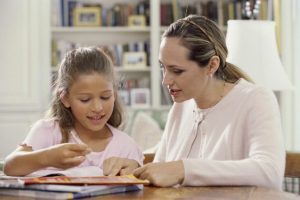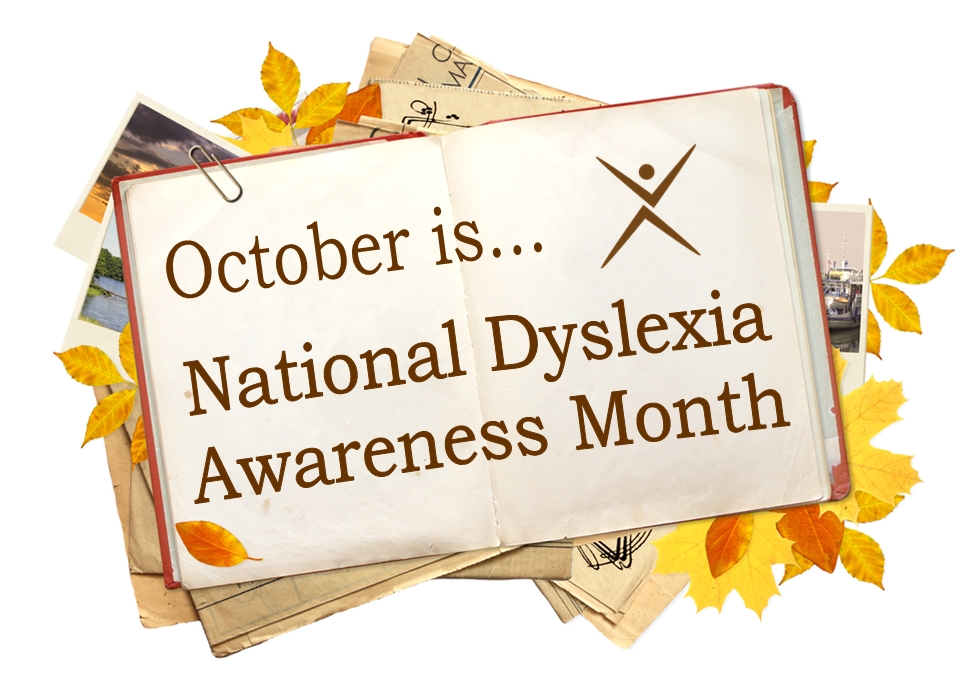
by PRIDE Reading Program Admin | Jan 25, 2015 | Articles & Resources, Dyslexia
PRIDE Learning Center Laguna Beach In-Home Tutoring for Dyslexia works with students of all ages. Our learning specialists are Orton-Gillingham trained and provide dyslexic students with the tools they need to become more efficient learners. With the PRIDE program and our in-home Tutors, Dyslexic students become better readers, more organized and build better study skills.
Dyslexia is a specific learning disability that is neurological in origin and primarily affects one’s ability to learn to read. Dyslexia is characterized by difficulties with accurate and fluent word recognition and by poor spelling and decoding abilities. Dyslexia varies in degrees of severity and is highly hereditary. It is not uncommon for a child with dyslexia to have an immediate family member who also has this condition. Also, it is not unusual for two or more children in a family to have dyslexia. PRIDE Laguna Beach In-Home Tutoring for Dyslexia Can Help.
Treatment
The sooner a child with dyslexia is given proper instruction, particularly in the very early grades, the more likely it is that they will have fewer or milder difficulties later in life.
Older students or adults with dyslexia will need intensive tutoring in reading, writing and spelling using an Orton-Gillingham program. During this training, students will overcome many reading difficulties and learn strategies that will last a lifetime.
Reading instruction for the dyslexic child must be delivered with great intensity. Children diagnosed with dyslexia are behind in their reading levels and for them to catch up with their classmates will need to make a big leap forward or else they will remain behind. Optimally, a child who is struggling with reading should be taught one-on-one and should receive this specialized reading instruction 2-3 hours Three to five days a week. A larger group or less time will greatly undermine the possibilities of success.
This specialized tutoring helps dyslexic students become successful in reading, writing, spelling, grammar, and vocabulary. It also will help them with math, and word problems.
At PRIDE Laguna Beach In-Home Tutoring for Dyslexia, we travel to your home, if you live in the Laguna Beach area (Laguna Beach, Corona Del Mar). We also offer online tutoring services.
In-Home rates are $90.00 per hour
For more information or to schedule your first lesson contact our Newport Beach Center.

by PRIDE Reading Program Admin | Jan 25, 2015 | Articles & Resources, Dyslexia
PRIDE Learning Center Coto de Caza In-Home Tutoring for Dyslexia works with students of all ages. Our learning specialists are Orton-Gillingham trained and provide dyslexic students with the tools they need to become more efficient learners. With the PRIDE program and our in-home Tutors, Dyslexic students become better readers, more organized and build better study skills.
Dyslexia is a specific learning disability that is neurological in origin and primarily affects one’s ability to learn to read. Dyslexia is characterized by difficulties with accurate and fluent word recognition and by poor spelling and decoding abilities. Dyslexia varies in degrees of severity and is highly hereditary. It is not uncommon for a child with dyslexia to have an immediate family member who also has this condition. Also, it is not unusual for two or more children in a family to have dyslexia. PRIDE Coto de Caza In-Home Tutoring for Dyslexia Can Help.
Treatment
The sooner a child with dyslexia is given proper instruction, particularly in the very early grades, the more likely it is that they will have fewer or milder difficulties later in life.
Older students or adults with dyslexia will need intensive tutoring in reading, writing and spelling using an Orton-Gillingham program. During this training, students will overcome many reading difficulties and learn strategies that will last a lifetime.
Reading instruction for the dyslexic child must be delivered with great intensity. Children diagnosed with dyslexia are behind in their reading levels and for them to catch up with their classmates will need to make a big leap forward or else they will remain behind. Optimally, a child who is struggling with reading should be taught one-on-one and should receive this specialized reading instruction 2-3 hours Three to five days a week. A larger group or less time will greatly undermine the possibilities of success.
This specialized tutoring helps dyslexic students become successful in reading, writing, spelling, grammar, and vocabulary. It also will help them with math, and word problems.
At PRIDE Coto de Caza In-Home Tutoring for Dyslexia, we travel to your home, if you live in the Coto de Caza area (Coto de Caza, Ladera Ranch). We also offer online tutoring services.
In-Home rates are $90.00 per hour
For more information or to schedule your first lesson contact our Mission Viejo Center.

by PRIDE Reading Program Admin | Oct 14, 2014 | Dyslexia
October is Dyslexia Awareness Month and PRIDE Learning Center and the International Dyslexia Association is sponsoring an event in San Clemente to help parents, teachers and individuals affected by dyslexia.
On Thursday, October 23rd at 7:00pm, the International Dyslexia Association will be hosting a large Dyslexia Awareness Event in San Clemente. The event will be held at Our Lady of Fatima Church located at 105 North La Esperanza. The evening will include speakers, information, resources and support.
PRIDE Learning Center, a local dyslexia tutoring company, will help the San Clemente community by participating in this October dyslexia event. This local learning center will have a booth at the event providing free assessments, free tutoring coupons, dyslexia resources and gift baskets.
We support Dyslexia Awareness Month,” says Karina Richland, owner of PRIDE Learning Centers. “We want to help increase the awareness of dyslexia in the South Orange County communities and advocate for the needs of individuals with dyslexia and their families,” says Richland.
Dyslexia affects a large part of the population. 1 out of every 5 children has symptoms of dyslexia, including slow or inaccurate reading, poor spelling and poor writing. Dyslexia is a language-based learning disability and is not due to a lack of intelligence or a desire to learn.
“We are so excited to participate in this event and help bring dyslexia awareness to the forefront and show that we at PRIDE Learning Center are here to help the children, families, teachers and professionals in the South Orange County community,” says PRIDE Learning Center owner, Karina Richland.
PRIDE Learning Center has four locations, San Clemente, Mission Viejo, Newport Beach and Redondo Beach. For more information contact PRIDE Learning Centers at 866-774-3342 or visit the website www.pridelearningcenter.com.

by PRIDE Reading Program Admin | Feb 18, 2014 | A PRIDE Post, Dyslexia
Because dyslexia is primarily associated with difficulty in learning to read, it cannot be reliably diagnosed until your child is the age at which reading typically begins. For most children this happens around the age of six. The following are some common characteristics that may be signs of dyslexia in preschool-age children:
- Jumbling sounds of words in speech, such as saying “pasgetti” for spaghetti” or “mawn lower” for lawn mover.”
- Confusing words signifying direction in space or time, such as “up” and “down,” “in” and “out,” “yesterday” and “tomorrow.”
- Forgetting or confusing the word for known objects, such as “table” or “chair.”
- Delayed speech development.
- Unusual speech patterns, such as frequent hesitations or stammering.
- Difficulty with learning.
- Difficulty remembering and following directions.
- Difficulty learning nursery rhymes and rhyming words.
- Difficulty in learning (and remembering) names of letters.
- Enjoys being read to but shows no interest in letters or words.
- Difficulty with clapping a simple rhythm.
In most cases you will probably not be aware that your child has dyslexia until he is in first or second grade. When reading instruction begins in earnest, your child is likely to lag behind and will begin to show signs of frustration at school. After several months, you may realize that your child simply hasn’t caught on to reading in the same way as his peers. He may still have difficulty recognizing letters of the alphabet, or he may know the letters and their sounds but seem unable to put them together to form even simple words. You may notice that he seems unable to remember words that he has seen before and struggles to sound out every word he sees.
The surest sign of dyslexia is simply the fact that your child seems bright and capable at home and at play, yet he struggles with reading, writing, and spelling. School-aged children with dyslexia will exhibit many of the following symptoms:
- Confusing letters with similar appearances, such as “b” and “d” or “e” and “c.”
- Writing that contains frequent reversals, transpositions, or inversions.
- Difficult remembering common sight words, even after repeated practice.
- Stumbling, hesitating, or making mistakes or omissions when reading small, easy words like “and” or “from.”
- Spelling phonetically and inconsistently such as writing “foniks” for “phonics” or “skul” for “school.”
- Complaining of dizziness, headaches, or stomachaches while reading.
Your first indication that something is wrong may be complaints from your child’s teacher about his behavior and problems he is experiencing at school. Many behavior problems stem from the dyslexia itself; your child’s teacher may complain that he doesn’t pay attention or follow directions, or that he is slow to complete class work. These issues may be the direct result of your child’s confusion and inability to understand much of what is going on around him. Other behavior problems may be deliberate and could be an expression of his frustration and anger; he may intentionally try to disrupt the class to create distractions so as to avoid having to complete his work. He would rather be known as the class clown than the class “dummy.” He may even want to incur punishment, if punishment means being sent to sit in the hallway or principal’s office. To a child with dyslexia, such punishment can be a welcome reprieve from the torture of the classroom. Some common behavior problems that your child’s teacher may report are:
- Laziness, carelessness, or immaturity
- Daydreaming
- Disruptive behavior
- Being easily distracted
- Resistance to following directions
- Reluctance to work on assignments
If you suspect that your child has dyslexia, you will want to seek testing and a diagnosis. Diagnostic testing will help you better understand your child and may guide you to make better choices. Ideally, testing should give you a map of your child’s strong and weak points, and a set of recommendations as to how best to meet his educational needs.
_________________________________________________________________________________________________________
Karina Richland, M.A. is the Founder of PRIDE Learning Centers, located in Los Angeles and Orange County. Ms. Richland is a Certified reading and learning disability specialist. Ms. Richland speaks frequently to parents, teachers, and professionals on learning differences, and writes for several journals and publications. You can visit the PRIDE Learning Center website at: www.pridelearningcenter.com

by PRIDE Reading Program Admin | Oct 18, 2013 | Dyslexia
October is National Dyslexia Awareness Month and a local dyslexia-tutoring center in San Clemente, California is offering free reading assessments.
Owner of PRIDE Learning Center in San Clemente, Karina Richland, reports, “Dyslexia is a learning disability that affects about 20% of the nation. That means that one out of every five children in the San Clemente classroom struggles with dyslexia.” Richland, a dyslexia specialist and owner of 5 dyslexia-tutoring centers throughout Los Angeles and Orange County says “Most children with dyslexia in this area go undiagnosed for years. With early detection, proper intervention, and certain accommodations in school, dyslexics can actually improve their reading skills dramatically.”
Warning Signs in School-Age Children
• Child uses memory skills in reading not decoding strategies
• Reads a word on one page but doesn’t recognize it on the next page
• Confuses look alike letters like b and d, b and p, n and u, or m and w
• Makes many reversals
• Substitutes a word while reading that means the same thing
• When reading leaves out or adds small words like “a, the, to, are, of”
• Reading fluency is poor
• Avoids reading as much as possible
• Misspells many words
• Writes illegibly
• Appears lazy, unmotivated, or frustrated
“The sooner a child with dyslexia is given proper instruction, particularly in the very early grades, the more likely it is that they will have fewer or milder difficulties later in life” states Richland.
PRIDE Learning Center provides one-on-one reading help for students with learning differences, including dyslexia, auditory and or visual processing disorder and ADHD. PRIDE specializes in an Orton-Gillingham reading approach for students struggling with dyslexia.
Parents or grandparents can bring their child in October 21st – October 25th for a free assessment that will measure their reading abilities. To schedule an appointment contact the San Clemente PRIDE Learning Center at 949-284-8015 or visit the website at www.pridelearningcenter.com

by PRIDE Reading Program Admin | Oct 14, 2013 | Dyslexia, Pride Newport Beach
October is National Dyslexia Month and a local tutoring center in Newport Beach is helping spread awareness by offering free assessments, resources and special events throughout the month of October.
Owner of PRIDE Learning Center in Newport Beach, Karina Richland, reports, “Dyslexia is a learning disability that affects about 20% of the nation. That means that one out of every five children in the Newport Beach classroom struggles with dyslexia.” Richland, a dyslexia specialist and owner of 5 dyslexia-tutoring centers throughout Los Angeles and Orange County says “Most children with dyslexia in this area go undiagnosed for years. With early detection, proper intervention, and certain accommodations in school, dyslexics can actually improve their reading skills dramatically.”
Warning Signs in School-Age Children
• Child uses memory skills in reading not decoding strategies
• Reads a word on one page but doesn’t recognize it on the next page
• Confuses look alike letters like b and d, b and p, n and u, or m and w
• Makes many reversals
• Substitutes a word while reading that means the same thing
• When reading leaves out or adds small words like “a, the, to, are, of”
• Reading fluency is poor
• Avoids reading as much as possible
• Misspells many words
• Writes illegibly
• Appears lazy, unmotivated, or frustrated
“The sooner a child with dyslexia is given proper instruction, particularly in the very early grades, the more likely it is that they will have fewer or milder difficulties later in life” states Richland.
PRIDE Learning Center provides one-on-one reading help for students with learning differences, including dyslexia, auditory and or visual processing disorder and ADHD. PRIDE specializes in an Orton-Gillingham reading approach for students struggling with dyslexia.
Throughout the month of October, parents or grandparents can bring their child in for a free assessment that will measure their reading abilities. To schedule an appointment contact the Newport Beach PRIDE Learning Center at 949-891-0125 or visit the website at www.pridelearningcenter.com







